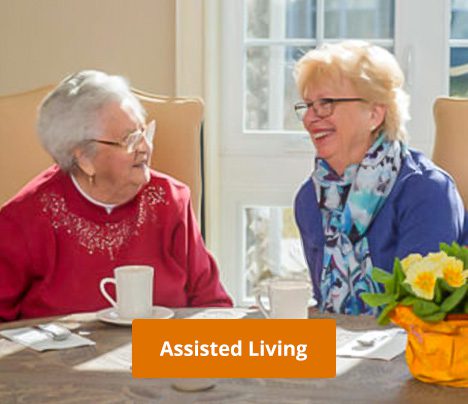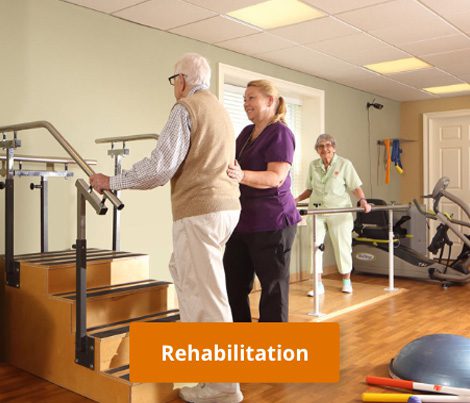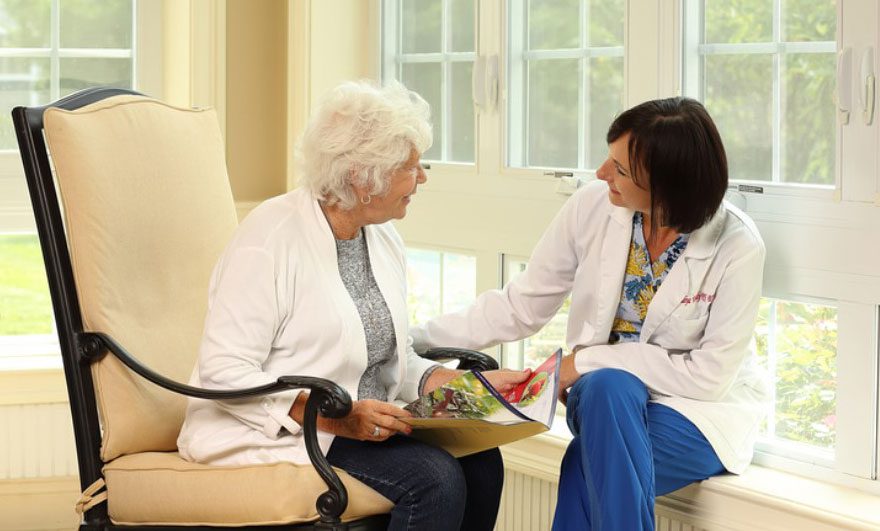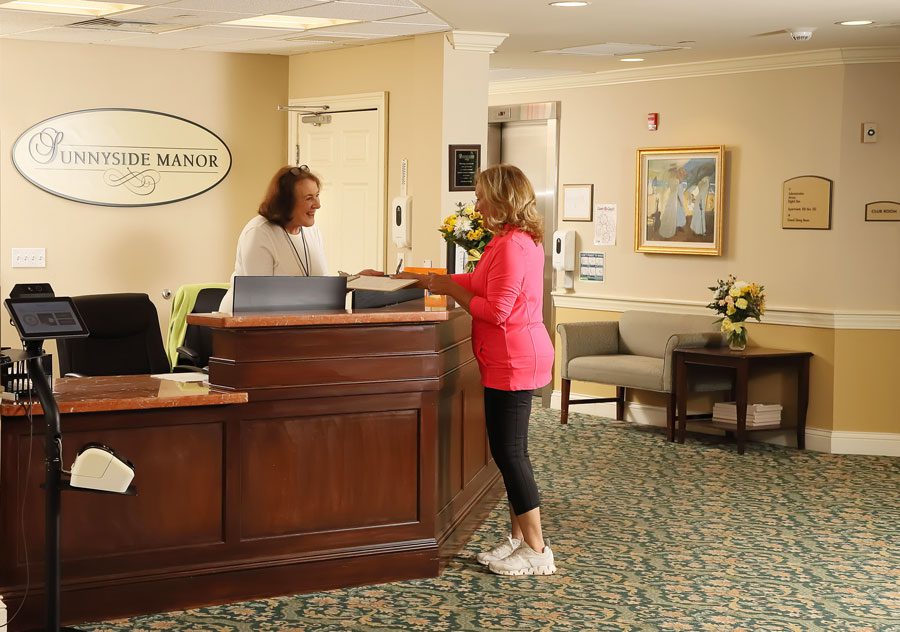Changing Roles: How to Manage The Transition from Child to Caregiver for a Senior Parent

 Do you find yourself frequently worrying over the person who worried over you for so many years? Stepping into the caregiver role for a parent brings with it new responsibilities and new challenges for adult children and their senior parents.
Do you find yourself frequently worrying over the person who worried over you for so many years? Stepping into the caregiver role for a parent brings with it new responsibilities and new challenges for adult children and their senior parents.
It is normal to feel emotional or conflicted about these changing roles. You may know your parent needs more help, but feel unsure, fearful, or even guilty about making decisions on their behalf.
All of these strong emotions can make it difficult to decide on the right course of action. This is an experience that many caregivers share. Fortunately, there are steps you can take to help you and your family make the right decisions and get the logistical and emotional support that you need.
Following are some of the common experiences that we’ve heard from caregivers in our community, and practical tips for managing the transition from child to caregiver.
How Do You Know When You’ve Become A Caregiver?
The first step to managing the changing roles in your family is accepting and making peace with this new reality.
Sometimes the transition from child to caregiver happens a little at a time, and sometimes it happens all at once.
It may start with you noticing that your parent is more frail or forgetful, so you step in to help with a few errands and household chores. Over time, your assistance is needed more often with more tasks, until your parent has become dependent on you and other family members for managing the tasks of day-to-day living.
Other times, the transition may happen very quickly, as with a sudden illness or injury. Adult children are put in the position of making sure their parent receives care and can continue to live safely during and after recovery.
Whether the transition is gradual or sudden, if you are worrying about your loved one’s safety and increasingly responsible for assisting with or managing their day-to-day activities, you have become a caregiver.
Common Emotional Experiences of Caregivers
Taking on the role of caregiver for an aging parent can bring up powerful emotions. These feelings are normal. Many caregivers have some or all of these experiences:
- Sadness and grief over the loss of a parent as the independent adult you always knew.
- Fear of making the wrong decisions or fear of disappointing or angering your parent.
- Guilt that you are not doing enough, or guilt over making a decision that your parent doesn’t like, even when it is in their best interest.
- Resentment about the demands of caregiving. Feelings of resentment are a sign that you may be doing too much. If you’re feeling resentment, it is time to look for resources within and outside of your family.
- Anxiety and worry about your loved one’s physical and emotional safety.
- Love and acceptance. While many of the emotions experienced by caregivers are challenging, many also feel increased love and acceptance when they change their perspective on their parent and recognize them as adults who are facing their own challenges and transitions.
Keep Lines of Communications Open
It is important to keep lines of communication open with your senior parent and with the rest of your family. That way, you can make the best decision for your parent’s care.
If you are the primary caregiver, speak openly with siblings and other involved family members. Remember that family members who are far away may not be aware of the day-to-day reality of looking after a loved one. Group emails and texts can help keep everyone up-to-date.
Be open and honest with your parent as well. Your parent is likely experiencing feelings of sadness, fear, or anxiety about their changing health. A senior living professional can offer strategies for having difficult conversations with your parents.
Managing the Transition: Practical Tips and Resources
Fortunately, there are abundant resources for caregivers in the community and online. Here are some practical tips for getting the support that you need to manage the transition from child to caregiver.
- Delegate or outsource where you can.
Remember, no one person can do it all. Consider outsourcing or delegating tasks where appropriate. For example, you can set up a regular grocery delivery service or cleaning service online. Enlist relatives with particular skills to help. Delegate a handy sibling the task of checking on the condition of the house. An outgoing neighbor may be happy to check in on your loved one from time to time. - Be honest about what you need.
If you’re beginning to feel overwhelmed or resentful about your caregiving responsibilities, be clear with your family about where you need support. That might be help in your own home, help with errands, doctors appointments, or other tasks. - Respite care.
Short-term assisted living services offer caregivers and seniors a much-needed rest. Respite care provides a safe, supported environment where your loved one can enjoy independence and time with peers, and you can get the rest you need. - Encourage your parent’s independence.
Encourage your parent to stay as independent as possible by doing as much for themselves as they can safely. Involve them in as many decisions as you can. - Support groups.
While it may seem like one more thing on the to-do list, a support group can provide much-needed understanding and help from others in similar circumstances. - Seek spiritual guidance.
Many houses of worship offer programs and counseling for caregivers. Non-religious practices like meditation and yoga can also bring peace and perspective, and can be found in the community and online. - Refresh yourself.
Even when it’s just for a few minutes at time, be sure to refresh yourself. A five-minute prayer or meditation in the car can put you in a much better frame of mind as you move from one task to the next. - Take care of your health.
Caregiving requires a great deal of energy. You can only look after others if you are healthy yourself. Continue to exercise, eat well, and get rest. - Do your homework.
There are more resources than ever available for seniors and their caregivers. From help at home to assisted living that maximizes independence, it’s important to explore all of the options so that you can make the best decision for your senior parent. - Call a professional.
When the tasks of caregiving feel overwhelming, seek professional help. Talk to your loved one’s physician about the services of qualified professionals, such as geriatric care managers or social workers, who can help guide you through caregiving options.
Each person and each family will respond to the challenges of caregiving in a different way. The most important thing to remember that what you and your family are feeling and experiencing is normal, and that there are resources to support you.
Getting the Help You Need
Whether you’re looking for short-term support or a longer-term plan, we are here to help. Begin with our “Getting Started” guide, or call us at 888-696-2052 to speak with a senior living expert.
The all new Sunnyside Manor, located in Wall NJ, is the area’s premier senior living community. It features three distinctive neighborhoods: Independence ‘Plus’ Assisted Living, Recollections Memory Care and Skilled Nursing.








